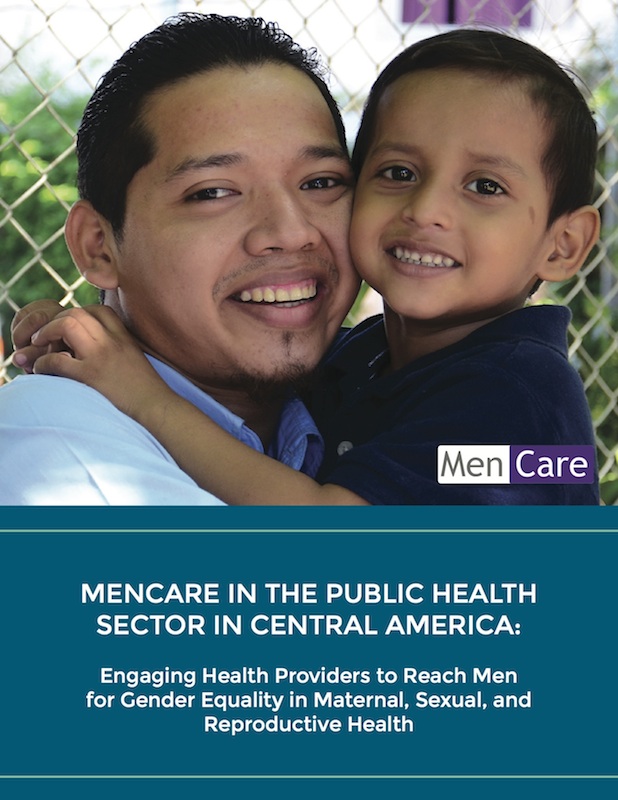 Engaging men in active fatherhood is critical to achieving gender equality. However, of all the topics discussed in engaging men in gender equality, the issue of men and caregiving, including men’s involvement in maternal, newborn, and child health (MNCH), remains conspicuously absent and underexplored.
Engaging men in active fatherhood is critical to achieving gender equality. However, of all the topics discussed in engaging men in gender equality, the issue of men and caregiving, including men’s involvement in maternal, newborn, and child health (MNCH), remains conspicuously absent and underexplored.
Engaging men as partners and allies in maternal, newborn, and child health is an important mechanism to achieve positive outcomes for women, children, and men; it is also a key entry point to engage men in health promotion more broadly. Health providers delivering pre- and post-natal care have the ability to transform the consultation space into a gateway to healthier, more involved, and more gender-equitable fatherhood. However, the gender attitudes of health providers, and the way that health systems are structured, greatly affect the quality of care they provide to the mother and the extent to which they involve the father.
From 2013 to 2015, MenCare partners ECPAT in Guatemala and Puntos de Encuentro and REDMAS in Nicaragua worked within their countries’ existing health systems to promote men’s engagement in active fatherhood and in maternal, newborn, and child health. In both countries, the work has led to positive changes in understanding the importance of men’s role in caregiving and involvement in pre- and post-natal care. MenCare partners trained health providers, health facility staff, and health educators; developed culturally appropriate materials; and provided group education to nearly 1,000 fathers and mothers.
Fathers who completed the program showed dramatic changes in their attitudes regarding the roles of men and women in caregiving, household duties, and parenting responsibilities. For example, at the end of the project in Guatemala, nearly 30% more participants believed that changing a baby’s diaper is not just a woman’s responsibility, while about 25% more participants stated that an unemployed father could also be a responsible father.
MenCare’s work in Guatemala and Nicaragua led to positive change not only among men and women at the individual level, but also at the institutional level. MenCare partners worked with health system leadership to successfully implement institutional policy changes and promote existing policies that support men’s engagement in caregiving and maternal, newborn, and child health. The results of the experiences in both Guatemala and Nicaragua demonstrate how working in partnership with country health systems and service providers is critical to promoting program sustainability and to making long-term structural change.
On March 3, 2015, MenCare Nicaragua’s Douglas Mendoza (Puntos de Encuentro) and MenCare Guatemala’s María Eugenia Villarreal (ECPAT) presented their work with health providers at panel discussions at the World Bank and the Inter-American Development Bank and launched a report summarizing the project and its results. To learn more about the project, download the full report here.